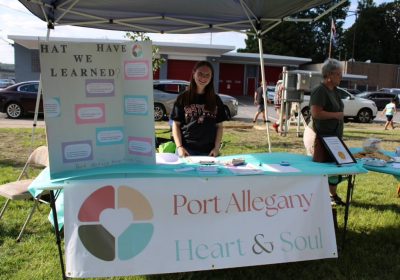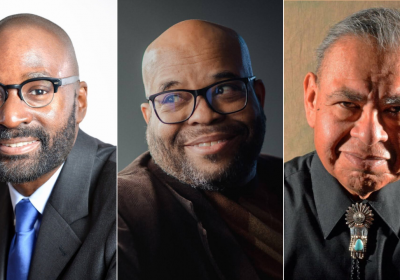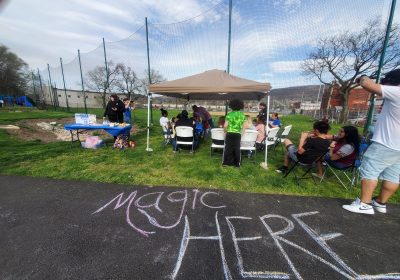By Karen Price
At one time, Kyra Taylor said, Black-owned businesses were plentiful and thriving in Erie.
But times changed, and many of those businesses have been bulldozed and paved over, leaving no physical remnants of what once was. That means that today’s residents might not even be aware of what roles past generations of families and neighbors once held in the community.
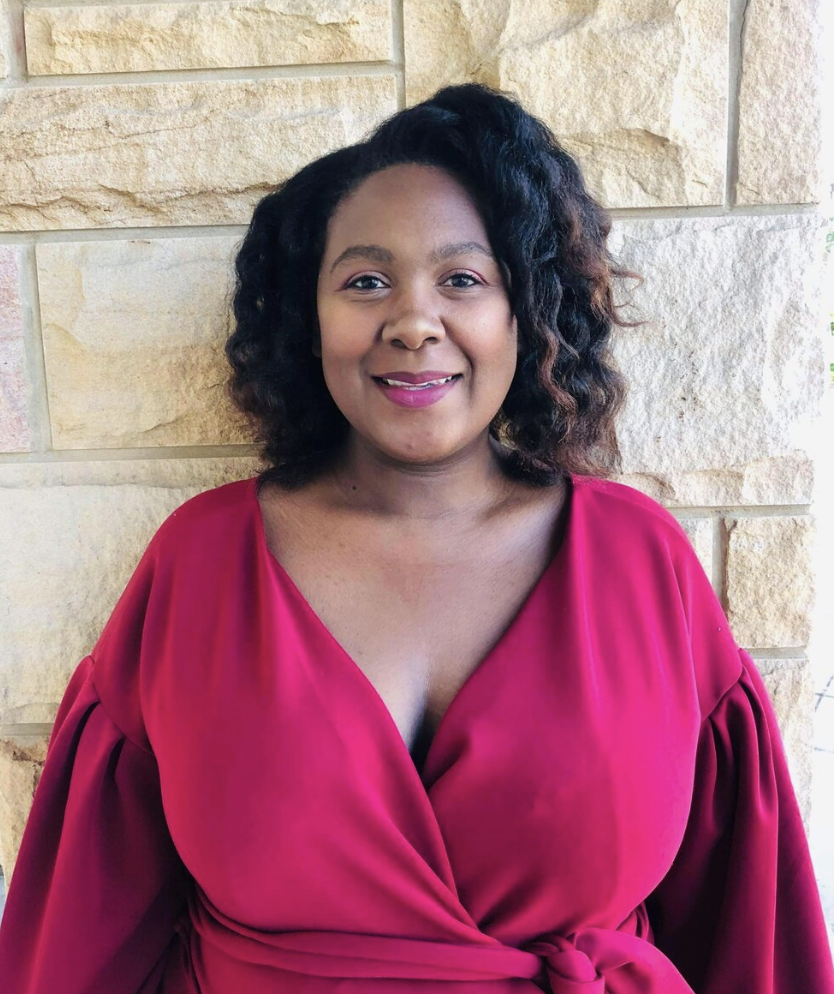
“Knowing your history can give you a sense of pride in who you are and what you’re capable of,” said Taylor, executive director of Erie’s Black Wall Street. “It lets you know what can be accomplished. If a kid doesn’t know they came from greatness, then achieving greatness, in whatever form or fashion that could be for them, could seem far-fetched. But knowing their family owned the first Black funeral home in Erie is something they can be proud of. They were trailblazers. That gives that kid a sense of accomplishment and self-worth that they can go out and be trailblazers as well.”
It is these types of stories that PA Humanities’ Voices of History project is capturing, as well as the stories of everyday Black Pennsylvanians and their families. The project launched in Pittsburgh this summer, and moved to Erie this fall with two story circles held in November at the Historical Institute of Culture and the African American Experience.
Erie’s Black Wall Street, which had earlier conceived of a similar project that has yet to come to fruition, partnered with PA Humanities to bring Voices of History to Erie.“It’s so important to preserve history, especially for minoritized and historically disadvantaged folks because oftentimes our history is erased from the history books,” Taylor said. “We don’t have an account for the history of Black and other cultures here in Erie. The documentation is not as robust as it could be, the artifacts are not as robust as they could or should be.”
“Knowing your history can give you a sense of pride in who you are and what you’re capable of. It lets you know what can be accomplished.”
Kyra Taylor, executive director, Erie’s Black Wall Street
More than a dozen people attended the first circle, where participants told stories of how Black people in Erie contributed to historical preservation and expanding the arts in Erie, including one about a teacher who started her own music school that became one of the first Black-owned businesses in the community. One person shared a story about their grandmother, who taught everyone in the neighborhood how to ride a bike. Others told stories of migration and shared family heirlooms, including a book and a fishing vest.
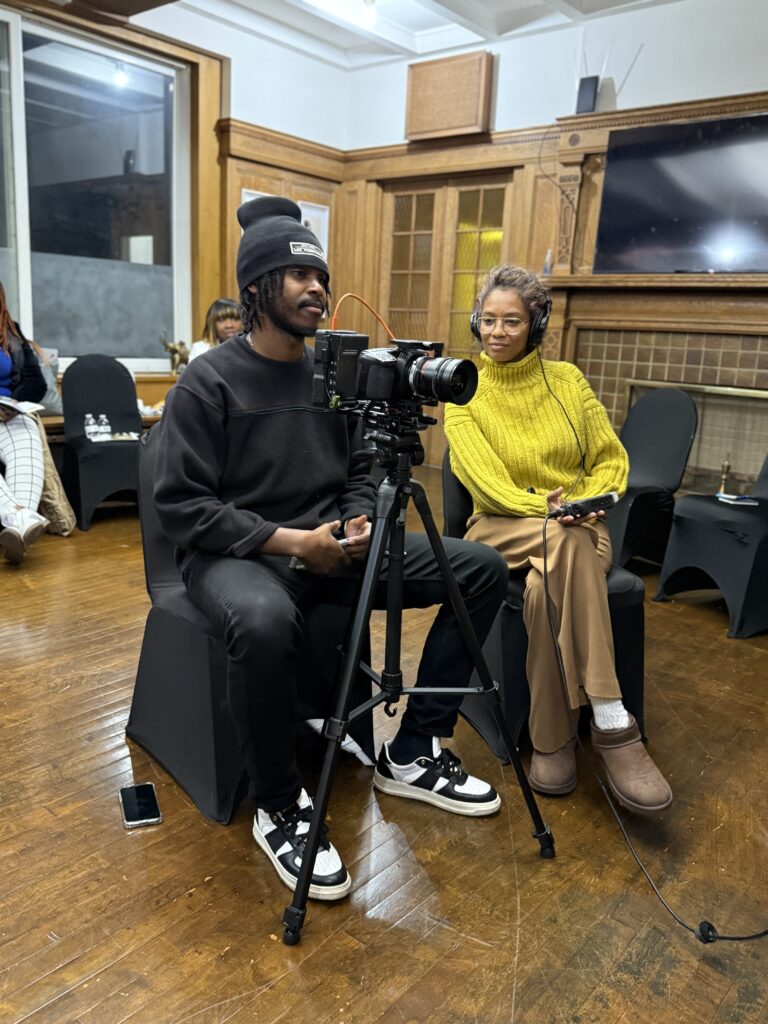
“The Voices of History project will document the untold stories of generations of Black residents, and how these memories can be celebrated and influence future generations,” PA Humanities senior director of content and engagement Dawn Frisby Byers said. “Erie’s Black Wall Street is the perfect community partner. Their work within the Black community is responsible for successful results in many areas. We’re proud to showcase the spirit and determination of Erie’s Black citizens.”
“Being able to tell stories, to hear where people have come from, to hear the good, the bad and the ugly, is something that can be passed down, but it’s also something that can be a learning tool,” Taylor said. “To know your history is beautiful. If you know your history there may be some things that you may not want to repeat and some things that you can say, ‘Hey, I’m going to take my history and heritage and run with this. My Ancestors did x, y and z and I’m going to go make them proud.’ Storytelling is such an important part of Black culture as a whole. It’s essential to our everyday lives.”
Storytelling not just within Erie’s Black Wall Street but within the entire Black American culture has been important throughout the ages, Taylor said. In their organization, storytelling is how they’re able to convey their message about what they’re trying to accomplish with their community and the importance of investing in what they’re doing.
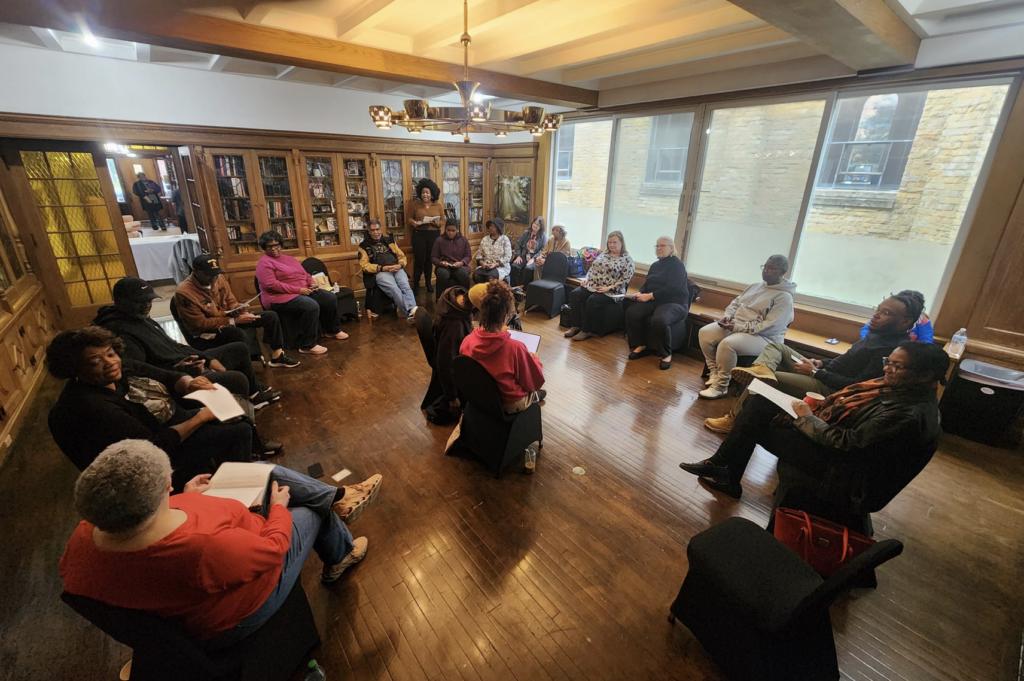
![[color – dark bg] PA SHARP FINAL FILES DB 72dpi [color - dark bg] PA SHARP FINAL FILES DB 72dpi](https://pahumanities.org/uploads/files/elementor/thumbs/color-dark-bg-PA-SHARP-FINAL-FILES-DB-72dpi-phgl7aimtfdpzt2rscvl43ksfv3asbbls19lsvuacw.jpg)
